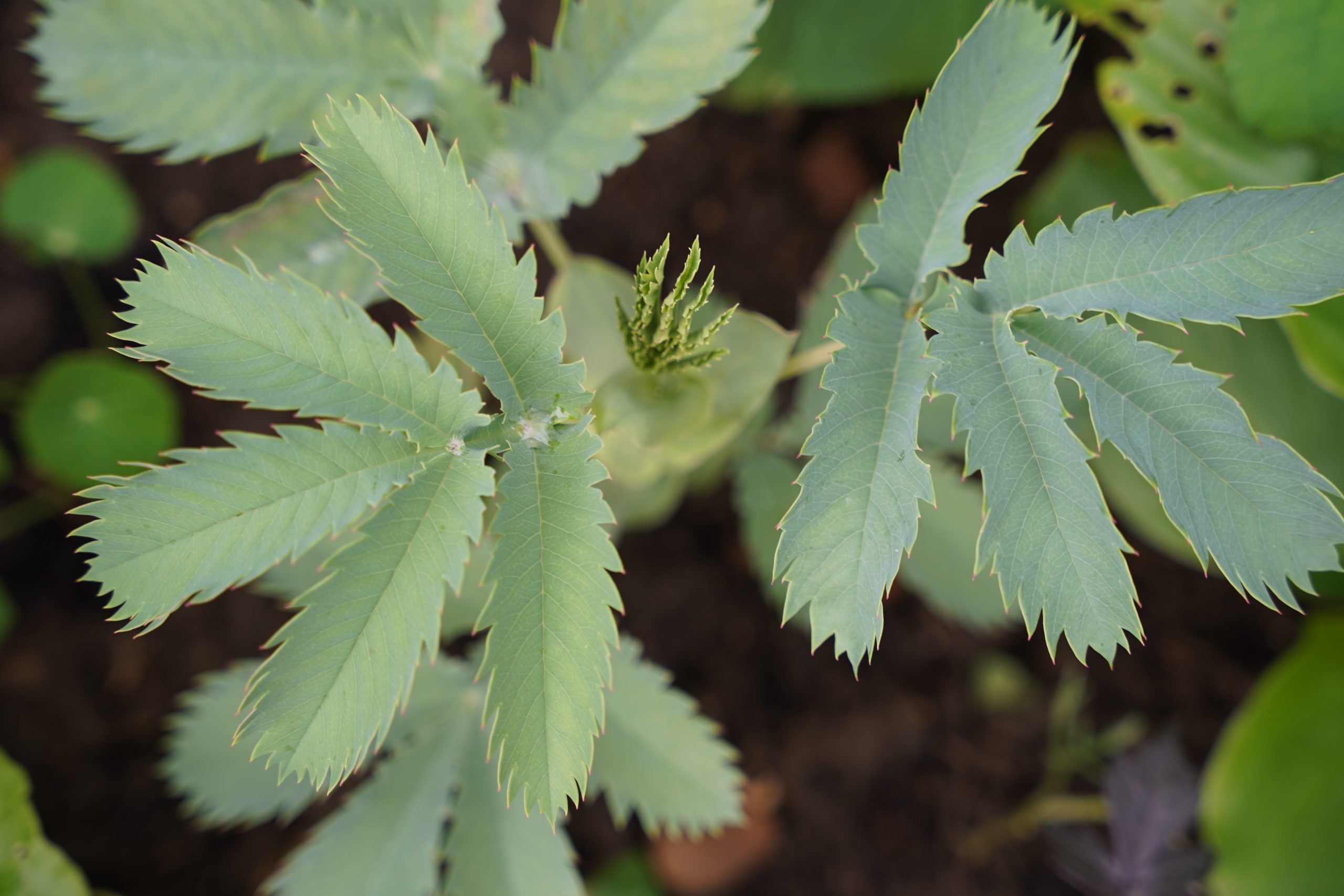Caring for Melianthus major (honey bush or giant honey flower) during the winter is crucial, especially in colder climates where frost and freezing temperatures can be damaging to the plant. Here are some guidelines for winter care:
- Mulching: Before the winter sets in, apply a thick layer of organic mulch (such as straw or compost) around the base of the Melianthus major. Mulching helps to insulate the roots and protect them from freezing temperatures. It also helps retain soil moisture and prevents weed growth.
- Protection from Frost: In regions where frost is common, consider providing additional protection to the plant. You can use frost cloths, burlap, or old bedsheets to cover the entire plant during particularly cold nights. Make sure the covering reaches the ground and is securely fastened to trap heat from the soil.
- Watering: During the winter months, Melianthus major typically goes into a period of dormancy, and its water requirements reduce significantly. Avoid overwatering the plant during this time, as soggy soil can lead to root rot. Only water the plant if the soil becomes extremely dry.
- Avoid Pruning: Refrain from pruning the Melianthus major in the winter. Winter pruning can stimulate new growth, which is vulnerable to cold temperatures. If pruning is necessary, wait until late winter or early spring when the worst of the cold has passed.
- Pot Cultivation: If you are growing Melianthus major in containers, consider moving the pots to a sheltered location during the winter. This could be a greenhouse, a covered patio, or a protected area against a south-facing wall. In colder climates, you might want to bring the potted plant indoors to overwinter.
- Check for Pests and Diseases: While Melianthus major is relatively pest and disease resistant, it’s still essential to inspect the plant occasionally during the winter. Look for signs of pests or diseases and address any issues promptly.
- Avoid Disturbing the Roots: During the winter, avoid digging or disturbing the soil around the plant’s roots. The roots are sensitive to disruption during cold weather and can be injured easily.

